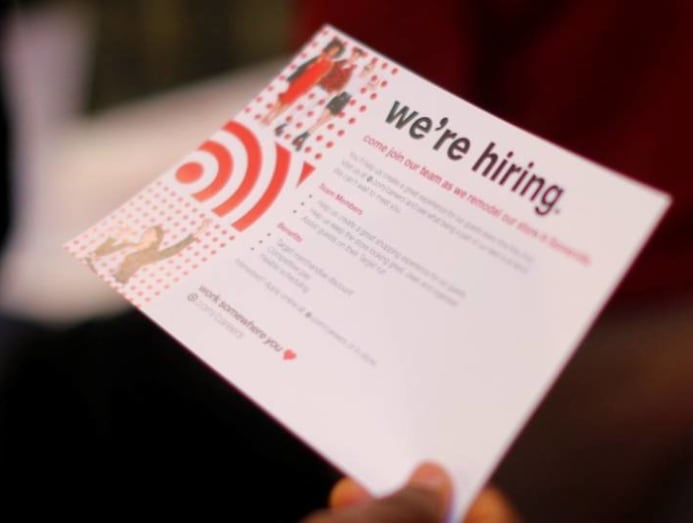Commentary: Job snobs? Is pickiness the key reason for unemployment?
QUEENSLAND: The "task snobs" are back on the agenda.
With some in the Australian authorities arguing for a lift in the unemployment benefit, other leaders announced to exist upping the rhetoric virtually joblessness being a matter of choice for many.
"There are jobs out there for those who want them," Minister for Employment, Michaelia Cash, has told the media.
On Aug 5, an Australian newspaper published these comments in a front-page story that suggested the Australian Department of Employment inquiry showed well-nigh one-half of all employers were finding it difficult to hire workers due to "lack of interest" – or because applicants did not take adequate qualifications.

The article was vague on which event was the bigger problem, but it led with the claim "job-seekers are actively snubbing work opportunities".
Such rhetoric is not new. Since the 1980s, governments accept increasingly stressed "the best form of welfare is a chore".
Requirements that claimants bear witness they are actively looking for work take become more onerous. Still talk nearly chore snobs go along.
Research, yet, suggests these perceptions are largely a myth.
Between 2022 and 2018, we were part of a team studying the well-being, social networks and job search experiences of unemployed Australians.
Our study found no show chore-seekers preferred not to work. It was hard not to conclude that any the reasons for their joblessness, lack of willingness to work was not one of them.
ENTRY-LEVEL JOBS
In some markets, structural labour marketplace issues create serious hurdles for some.
A 2022 report by anile care services Anglicare, for case, institute the proportion of entry-level vacancies slipped from 22 per cent to 15 per cent over a decade. This ways just 1 entry-level job for virtually every five entry-level job seekers.
This explains why employers tend to speak more nigh "lack of job-readiness" beingness a problem, rather than lack of involvement.

READ: Having trouble finding that outset chore? Endeavour an internship subsequently graduation a commentary
MOVING TO WHERE THE JOBS ARE
One trope used to suggest there are "chore snobs" is to invoke job vacancies in places outside of cities.
Packing upwardly and moving for work, however, isn't necessarily that simple.
The vast majority of job-seekers in our study expressed a strong general willingness to move for work, and many had relocated in the past.
But whether they would movement for a particular opportunity depended on the sorts of factors the rest of the states would consider.
They were cautious nearly moving for brusque-term, temporary roles given the price of moving, for example.
Doing so was seen as an expensive and risky proposition. Some individuals had no spare cash to move even if they wanted to.
Also important were family considerations – such equally maintaining stability for children in school, or caring for ageing parents.

READ: The middle life crisis we don't want to face up, a commentary
Some feared they would not be able to find rental adaptation as affordable as what they had. Many younger people nonetheless living with their parents were wary of moving away from family unit support, particularly if they didn't ain a car.
Many of our interviewees as well expressed feelings of depression, maybe reflecting underlying economic insecurity and uncertainty. Long-term unemployment and poverty are associated with poor mental health, which could affect someone's willingness to go out support networks of family unit and friends.
SHIFTING RESPONSIBILITY
Our research on the complex reasons that might forbid job-seekers from seizing every job opportunity points to the dangers of making punitive generalisations such equally "there are jobs out there for those who want them".
Such rhetoric glosses over the lived realities of being unemployed. It ignores the atmospheric condition of individuals' lives.
It obscures the structural realities of competitive labour markets. It shifts responsibleness for unemployment to the individual.
READ: What 2019's graduating jobseekers need to know – four recession-proof strategies, a commentary
A richer understanding of the realities of unemployment and poverty, as well equally a broader conception of well-being, is needed to solve the trouble.
Greg Marston is professor of social policy and the head of department the School of Social Science at The University of Queensland. Michelle Peterie is research fellow in the same university.
Gaby Ramia is associate professor at the University of Sydney, and Roger Patulny is senior lecturer in Folklore at University of Wollongong.
A version of this commentary beginning appeared on The Conversation.
Source: https://cnalifestyle.channelnewsasia.com/commentary/commentary-job-snobs-pickiness-key-reason-unemployment-299636
0 Response to "Commentary: Job snobs? Is pickiness the key reason for unemployment?"
Post a Comment